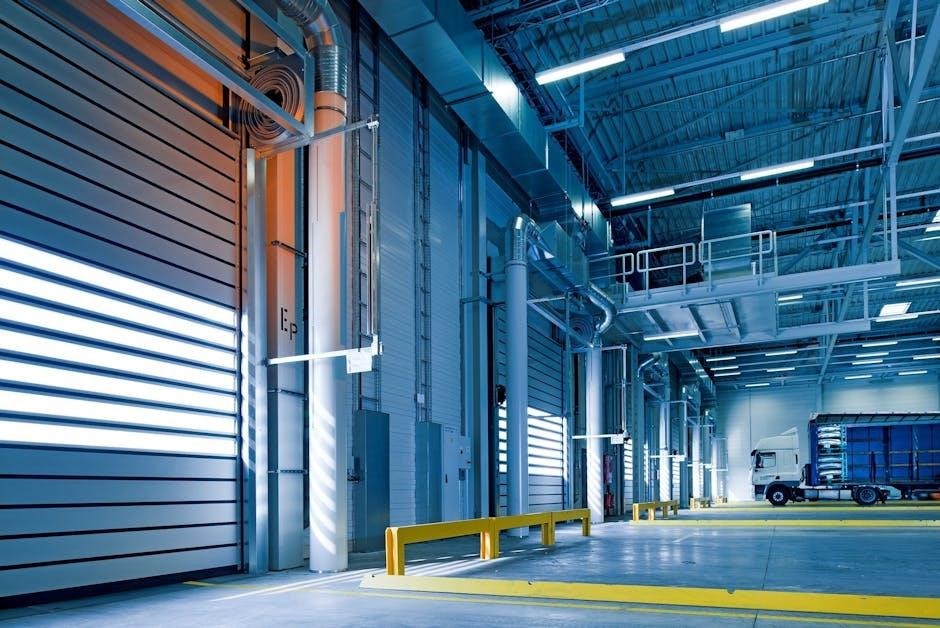tonka truck price guide
Welcome to the Tonka Truck Price Guide‚ your ultimate resource for understanding the value of vintage and collectible Tonka trucks. This guide helps collectors and enthusiasts determine the worth of their Tonka trucks based on condition‚ rarity‚ and age‚ ensuring informed buying and selling decisions.
Brief History of Tonka Trucks
Brief History of Tonka Trucks
Tonka Trucks have a rich history dating back to 1947 when Tonka Toys was founded in Mound‚ Minnesota. The name “Tonka” comes from Lake Minnetonka‚ near the company’s original location. The first Tonka truck‚ made of steel‚ was introduced in 1949 and quickly became popular for its durability and detailed design. In the 1950s and 1960s‚ Tonka Trucks gained immense popularity‚ with iconic models like the Mighty Dump Truck and the Aerial Ladder Fire Truck. By the 1980s‚ Tonka shifted to plastic construction‚ expanding its range. Today‚ vintage Tonka Trucks are highly collectible‚ with rare models fetching high prices at auctions and online marketplaces.
Why Tonka Trucks Are Collectible
Tonka Trucks are highly collectible due to their rich history‚ durability‚ and nostalgic appeal. Introduced in the late 1940s‚ these trucks became iconic for their sturdy construction and detailed designs‚ making them both toys and timeless collectibles. Vintage models‚ especially those in mint condition with original packaging‚ command high prices. Rare and limited-edition trucks‚ such as the 1950 Steel Carrier and 1956 Aerial Ladder Fire Truck‚ are particularly sought after by enthusiasts. Their enduring popularity stems from a combination of historical significance‚ craftsmanship‚ and the nostalgia they evoke‚ making them valuable additions to any collection.
Factors Affecting the Value of Tonka Trucks
The value of Tonka trucks depends on condition‚ rarity‚ age‚ and original packaging. Mint-condition trucks with functional parts and intact logos fetch higher prices‚ driven by collector demand.
Condition of the Truck
The condition of a Tonka truck is a critical factor in determining its value. Trucks in mint condition‚ with no signs of wear or damage‚ command the highest prices. Functional parts‚ such as moving wheels or operating mechanisms‚ significantly increase value. The presence of original paint‚ intact seats‚ and the Tonka logo further enhances worth. Trucks with rust‚ dents‚ or missing components are less valuable. Mint-condition Tonka trucks in their original packaging can increase value by 20-50%. Collectors prioritize trucks with minimal restoration‚ as originality is key to maintaining authenticity and appeal.
Rarity and Demand
Rarity and demand significantly influence the value of Tonka trucks. Limited production runs‚ unique designs‚ or specific models‚ such as the 1950 Steel Carrier or the 1956 Aerial Ladder Fire Truck‚ are highly sought after by collectors. Trucks with rare color variations or special editions also command higher prices. Demand often dictates market value‚ with certain models being more popular among collectors. Rare Tonka trucks in excellent condition can sell for thousands‚ while more common models may fetch lower prices. Understanding current demand and identifying rare models are essential for determining their worth in the collector’s market.
Age of the Truck
The age of a Tonka truck plays a crucial role in determining its value. Trucks produced in the 1940s and 1950s‚ such as the iconic 1950 Steel Carrier‚ are generally more valuable due to their historical significance and rarity. Early models are often sought after by collectors‚ as they represent the brand’s heritage. Trucks from the 1960s and 1970s also hold value‚ though prices may vary depending on condition and demand. Newer models‚ while still collectible‚ typically do not command the same premiums as their vintage counterparts. The age of the truck‚ combined with its condition‚ helps establish its place in the collector’s market.

How to Determine the Value of Your Tonka Truck
Assessing your Tonka truck’s value involves evaluating its condition‚ rarity‚ and age. Research online marketplaces and price guides to compare similar models and determine fair market value.
Checking Online Marketplaces
Online marketplaces like eBay‚ Etsy‚ and specialized toy auction sites are excellent resources for determining your Tonka truck’s value. Search for similar models‚ noting their condition‚ rarity‚ and demand. Compare prices of active and sold listings to gauge fair market value. Use specific keywords like “vintage Tonka truck” or “1950 Steel Carrier” to refine results. Pay attention to listings with high-quality photos and detailed descriptions‚ as these often attract serious buyers. Monitoring deadlines and starting bids can also provide insights into current trends and pricing dynamics. This method offers real-time data to help you make informed decisions about buying or selling your Tonka truck.
Using Price Guides and Catalogs
Price guides and catalogs are essential tools for determining the value of Tonka trucks. Reputable sources like antique toy price guides and collector communities provide detailed valuations based on condition‚ rarity‚ and age. These resources often include photos and model numbers‚ helping you identify your truck accurately. Specialized Tonka truck catalogs list historical prices and trends‚ offering insights into market demand. By cross-referencing multiple guides‚ you can establish a fair and accurate value for your truck. Additionally‚ collector forums and enthusiast groups share valuable knowledge‚ ensuring you stay informed about current pricing and trends in the Tonka truck collector community.
Getting a Professional Appraisal
Professional appraisals provide an accurate and unbiased valuation of your Tonka truck. Experts assess condition‚ rarity‚ and historical significance‚ ensuring a precise estimate. Appraisers use specialized knowledge‚ market trends‚ and comparison to similar sold items. They inspect for original parts‚ paint condition‚ and functionality. Some appraisers use UV light to detect repaints or repairs. You can find appraisers through antique toy dealers‚ auction houses‚ or collector communities. While fees may apply‚ a professional appraisal offers credibility and confidence for high-value or rare Tonka trucks. It’s especially recommended for unique or early models‚ helping you understand their true market worth.

Most Valuable Tonka Trucks
Discover the rarest and most sought-after Tonka trucks‚ including the 1950 Steel Carrier‚ 1956 Aerial Ladder Fire Truck‚ and vintage Mighty Dump Truck‚ highly prized by collectors.
1950 Steel Carrier
The 1950 Steel Carrier is one of the rarest and most valuable Tonka trucks‚ sought after by collectors for its historical significance and durability. Made from sturdy steel‚ this model features a classic design that reflects Tonka’s early commitment to quality. In excellent condition‚ it can fetch up to $1‚000‚ especially if it retains its original paint and functional parts. As part of Tonka’s initial lineup‚ the Steel Carrier holds a special place in the brand’s history. Collectors should look for models with minimal rust and intact details‚ as these factors significantly impact its value. A mint-condition Steel Carrier with its original box can command a premium price‚ making it a crown jewel for any serious Tonka collector.
1956 Aerial Ladder Fire Truck
The 1956 Aerial Ladder Fire Truck is a highly sought-after Tonka model‚ known for its intricate design and historical appeal. It features a extendable ladder and detailed fire truck aesthetics‚ making it a favorite among collectors. In mint condition‚ this truck can sell for up to $1‚000‚ as evidenced by past eBay sales. Its value is influenced by the condition of the paint‚ the functionality of its ladder‚ and the presence of original accessories. Rare examples with minimal wear and intact parts are particularly prized. Collectors should prioritize models with their original packaging‚ as this significantly enhances their worth. This truck is a standout piece in any Tonka collection‚ reflecting both craftsmanship and nostalgia.
Vintage Mighty Dump Truck
The Vintage Mighty Dump Truck is a beloved Tonka collectible‚ especially popular among enthusiasts for its durability and classic design. Produced in the 1970s‚ this model features a sturdy steel construction and a distinctive yellow color. In excellent condition‚ with minimal rust and intact moving parts‚ it can fetch between $50 to $150. Rare examples with original paint and functioning mechanisms are highly sought after‚ sometimes reaching up to $200. Collectors often prize these trucks for their nostalgic appeal and craftsmanship. To maximize value‚ look for models with minimal wear and original packaging‚ as these factors significantly enhance desirability and market worth.

How to Buy and Sell Tonka Trucks
Explore platforms like eBay‚ specialized forums‚ and local auction houses to buy or sell Tonka trucks. Research prices‚ ensure original packaging‚ and highlight condition to maximize value. Negotiate fairly and provide clear photos for successful transactions.
Best Platforms for Buying and Selling
Etsy‚ eBay‚ and Facebook Marketplace are top platforms for buying and selling Tonka trucks‚ offering wide audiences and competitive pricing. Specialty toy forums and collector groups provide niche markets for rare models. Local classifieds and vintage toy stores are great for in-person transactions. Auction houses like Heritage Auctions cater to high-value‚ rare trucks. When selling‚ include clear photos‚ detailed descriptions‚ and condition reports to attract serious buyers. For buyers‚ research recent sales and set alerts for desired models. These platforms ensure visibility‚ credibility‚ and fair deals‚ making them essential for successful transactions in the Tonka truck collector community.
Negotiating Prices
Negotiating prices for Tonka trucks requires a strategic approach to ensure fair deals. Start by researching market values using price guides and recent sales data. When buying‚ consider offering 10-20% below the listed price to leave room for negotiation. Highlight the truck’s condition‚ such as flaws or needed repairs‚ to justify lower offers. Sellers should emphasize rarity‚ original packaging‚ and mint condition to command higher prices. Be respectful and open to counteroffers to build trust. For online transactions‚ use platforms with escrow services to protect both parties. Negotiation is key to balancing seller expectations and buyer budgets‚ ensuring satisfaction for all involved.
The Tonka Truck Price Guide is an essential tool for collectors‚ providing insights into values based on condition‚ rarity‚ and age. Use this guide to make informed decisions and enjoy the journey of collecting these iconic toys.
Final Tips for Collectors
When collecting Tonka trucks‚ prioritize condition and rarity to maximize value. Original packaging and functional parts significantly increase worth. Research market trends and use price guides to make informed decisions. Consider professional appraisals for rare or uncertain items. Focus on specific models‚ like the 1950 Steel Carrier or 1956 Aerial Ladder Fire Truck‚ as they often command higher prices. Be patient and persistent in your search for rare finds. Join collector communities to network and gain insights. Keep your collection well-maintained and store items responsibly to preserve their value. Stay updated on market demands and trends to ensure your collection remains valuable. Happy collecting!
Where to Find More Resources
To deepen your knowledge‚ explore online marketplaces like eBay for recent sales data and collector forums for insights. Auction houses such as Heritage Auctions often feature rare Tonka trucks. Visit the official Tonka website and vintage toy collector communities for detailed guides. Check out diecast enthusiast forums and specialty toy collector groups. Local antique shops and vintage toy stores can also provide valuable information. Use specific keywords like “vintage Tonka truck value” or “rare Tonka models” to find relevant resources. These platforms offer a wealth of information to help you make informed decisions and expand your collection effectively.
